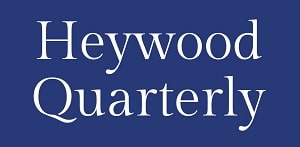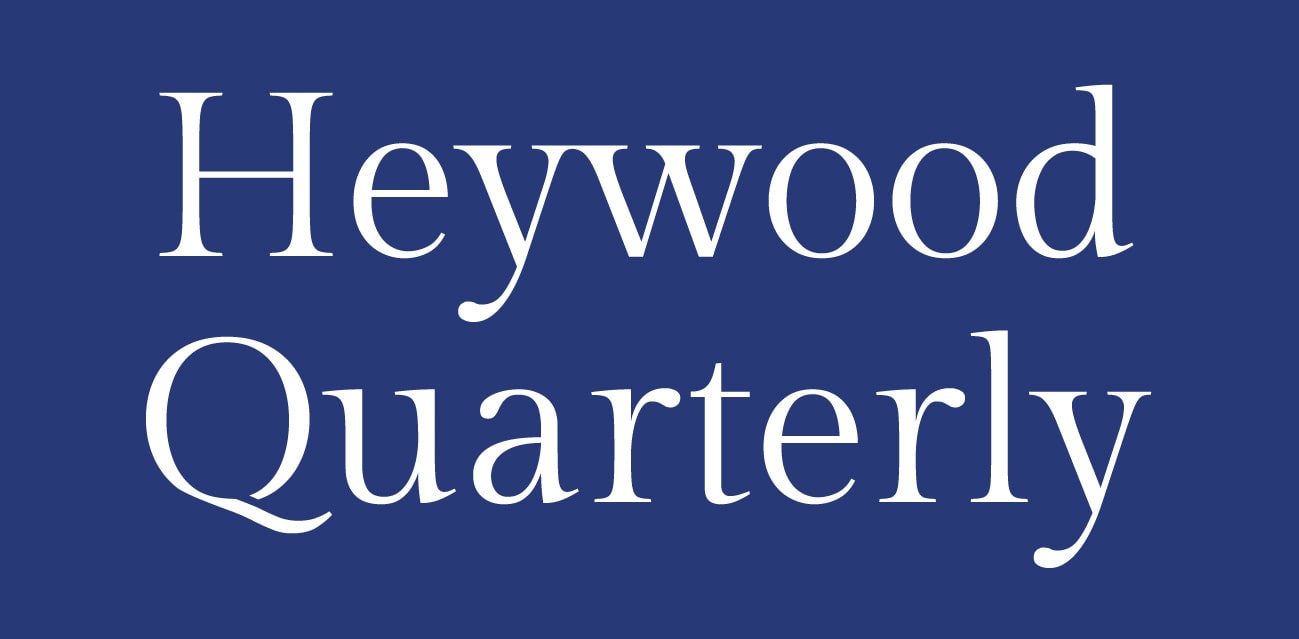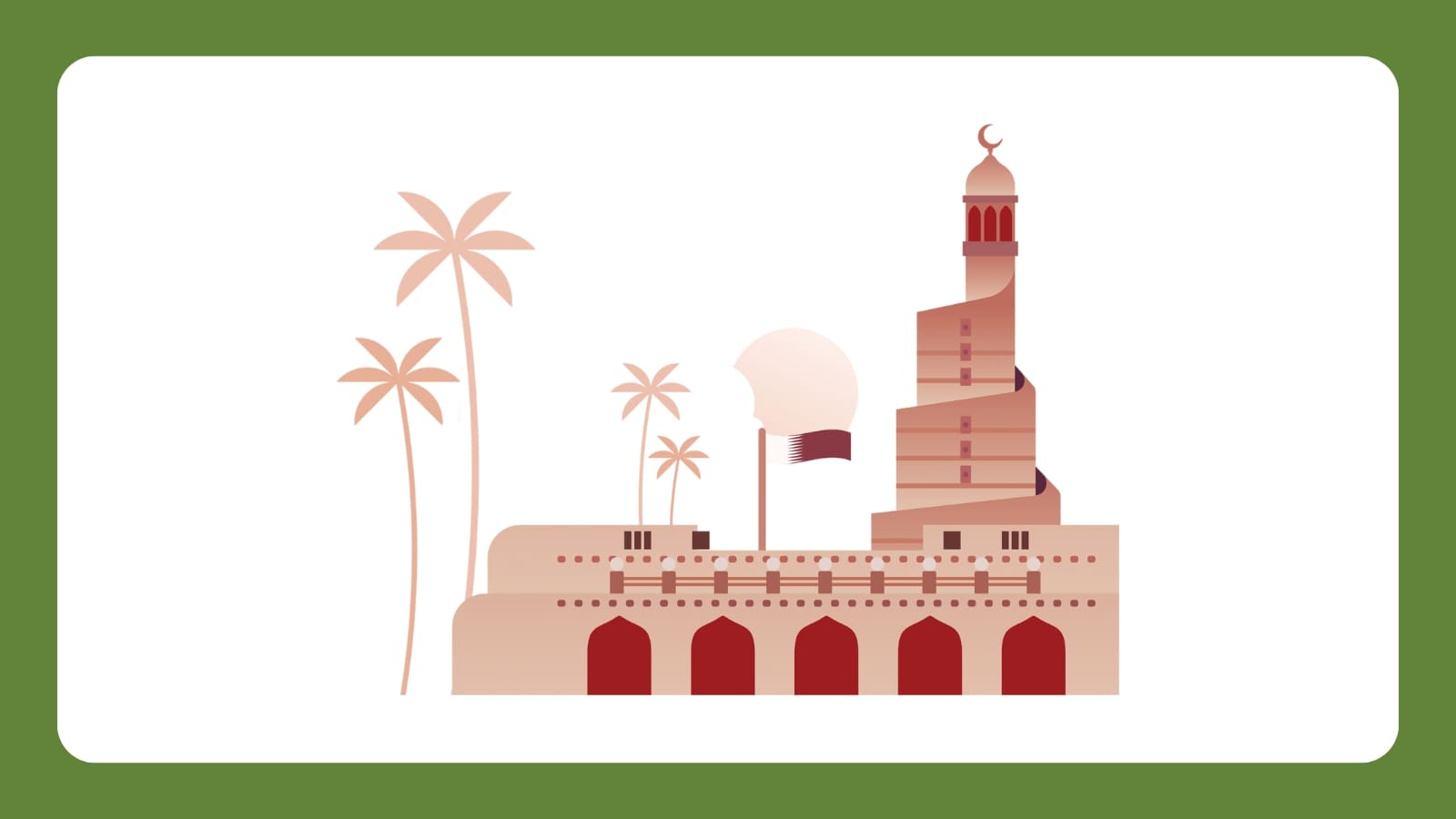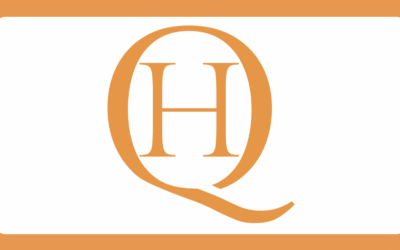Neerav Patel on Gaza, Qatari weddings, and why it’s important to be able to play the role of a roadie
I first worked for Jeremy Heywood when he was Permanent Secretary in Gordon Brown’s Downing Street. He created a scheme to install a small number of Fast Streamers in the Policy Unit. I was one of them, supporting the Special Advisors working on the foreign and security files and some domestic portfolios – writing policy papers, speeches and coordinating work with colleagues in the Cabinet Office. I loved working across the full range of issues, at a time when the government was increasingly trying to bridge outdated policy boundaries, notably between foreign and domestic issues. Jeremy was at the heart of that, with his focus on strategic thinking, good governance and encouragement to go to wherever the policy problem took you. Internationalism wasn’t about ideology, it was just good policy: an essential source of tools and ideas to address the main challenges of the day. My career since has spanned the foreign-domestic and security-prosperity axes, with roles in the Cabinet Office/Number 10, and overseas in Afghanistan, Israel and Egypt. I have been British Ambassador to Qatar since January 2024.
My diary can vary enormously, so what follows is an account of the activities that might take place on an average day.
0700. Language lesson in the Residence. Whenever I can, I try to start the morning with Arabic. Typically I manage a 60-minute lesson three times a week (immediately preceded by the 30 minutes of homework I haven’t got round to from the last lesson).
You can function in Doha with only English; Qataris are both anglophile and anglophone. But speaking the local language has helped me gain deeper insights. I am training my ear and my tongue to the Gulf dialect, in place of the Egyptian that I picked up in Cairo (my previous posting). My teacher and I practise negotiation scenarios, discuss Qatari culture and history, and debate stories in the Arab media, all of which connects me to the country’s culture and provides a valuable perspective.
0800. Meeting with Deputy Head of Mission. Each Embassy is effectively a ‘mini-Whitehall’; in Doha, my deputy Duncan Hill and I oversee and lead the work of some 70 staff and 10 government departments.
Duncan and I tend to chew over everything, from the strategic to the tactical, talking as much about the running of the organisation as the policy issues. I try to stay strategic, covering the key external relationships and being the ‘front of house’ face of the Embassy, while providing strategic analysis and advice for London. Duncan focuses on running the ship, and ensuring that our teams’ operational activities are in line with our vision. But we often need to cover for each other, so we share everything.
The day after the UK general election was called, Duncan and I ran through some implications for the Embassy. The general rule, as per the pre-election guidance, is that international business continues as normal. Our focus on conflicts such as Gaza and Ukraine did not abate. But there was an impact on our work – like all Civil Servants we needed to maintain our impartiality. So we scrubbed our comms and policy plans for the next few weeks, identified a couple of things that might need to change, and we consulted London. Unlike other countries, the UK doesn’t run voting booths in its Embassies overseas, so we didn’t have to worry about those logistics; instead we used our normal channels to British nationals to explain how they could vote.
0830. Policy Briefings on Gaza and other regional issues.
Qatar has been playing a key role in trying to negotiate a stop to the Gaza conflict. It has had continuous, discreet contact with Israel for more than 30 years, and Hamas’ political office has been present here for over a decade, at the request of the US. Mediation is in Qatar’s DNA, codified in the constitution, and the country has long marketed Doha as a ‘Mecca of the dispossessed’. This friend-to-all policy can be useful to UK interests. It is a close military and security partner for us, a ‘Major Non-NATO Ally’ for the US (host to the largest American airbase in the Middle East), and enjoys influence with the likes of Iran. Sometimes these ties can make for interesting moments – at a recent Defence exhibition in Doha, one senior Western general who had served several times in Helmand shared a hotel lift with the Taliban defence minister, and son of former leader Mullah Omar. Happily, the ride was brief.
While Gaza is the current priority, we review any developments affecting UK interests in Qatar. On any given day policy leads might be talking through plans for a potential trade deal, UK-Qatar development partnerships in Bangladesh or Sudan, or cultural exchanges.
I also review complex and sensitive cases with our Embassy’s consular team, which have included instances of drugs use, murder and rape. Working on behalf of British citizens is one of our most important responsibilities, a crucial public service. Much of this happens quietly, under the radar: visiting prisons to support our fellow nationals, advising bereaved families on the repatriation of bodies, or (in a recent complex case) helping to secure appropriate HIV medication. The standard FCDO public line of ‘the Foreign Office is providing consular support to a British National’ covers a huge variety of challenging situations.
My personal contribution can vary too – from simply tracking an issue, to shaping the team’s plans or intervening personally when needed.
0930. Breakfast with Business Leaders. Qatar’s economy is robust and growing, and its huge gas reserves all but ensure the country’s prosperity for the next 30 years. It is also diversifying, and there are opportunities for partnerships between British and Qatari companies in many sectors, notably in data and AI, infrastructure and transport, health, education and financial services.
Today, I am chairing a roundtable discussion with prominent Qatari business leaders, officials and British businesses on clean energy cooperation. Earlier in the week it was talking to a visiting delegation about precision healthcare. Sometimes it’s simply helping UK firms deliver their messages; more often, though, we put in a lot of preliminary work to understand the different positions of the parties, and think through how to use the session to bridge gaps.
Following the meeting, the Embassy team identifies areas of potential collaboration, and develops a follow-up strategy. I will help unlock doors in Qatar, with Ministers and CEOs, and raise strategic policy issues with decision makers in London.
1100. Meeting with the Qatari Deputy Foreign Minister. We talk about the latest on their Gaza mediation efforts, and I seek information about the status of British hostages. I have served full tours in Egypt and Israel and done stints back in Tel Aviv during the last two conflicts, so have a good grounding in the players, but this conflict has had critical twists, sometimes on a daily basis. So I rely a lot on the outstanding work of the Foreign Office HQ in London to ensure that insights from across the network are digested and shared with critical posts such as Doha. We also touch on Qatari efforts to mediate on hostages in Venezuela, Iran and Ukraine.
But it’s not all about conflict and mediation. The relationship between the UK and Qatar is close, based on historic foundations and strong connections between our two peoples. The UK recorded 1.2 million Qatari visitors last year from a country that only has 300,000 citizens. Qataris study more in the UK than in any other country. This creates a platform for broad cooperation: the RAF’s only joint squadron in the world since WWII is with Qatar; Doha is a major supplier of gas to the UK; and Qatari investments in the UK amount to more than £40bn. We have cooperation agreements covering labour rights, technology, environmental protection and in a dozen other fields.
We have plans to launch huge partnerships on clean energy; joint projects on culture, healthcare and education; a generational land defence relationship to match the air cooperation; and collaboration on new frontiers including cyber and AI.
One area where we are innovating is in international development. Twenty years ago we would have had a very limited conversation with Qatar on this issue, but now the UK has a full-time senior diplomat posted to Doha focused on building the development partnership. We spend no aid money here, but both governments now co-fund health and education projects across Africa and Asia, and have joint humanitarian initiatives on Gaza. We have an annual Ministerial Development Dialogue and are also doing joint training on the nuts and bolts of humanitarian and development work, as well as cooperating on multilateral development.
In meetings with officials, there is genuine warmth, based on trusting relationships, which allow us to have difficult conversations. We see eye-to-eye on so much, but there are differences (true for all of the UK’s partners). My approach to navigating these is ‘no surprises’ – making clear the UK position, and why; explaining Qatari decision-making to London; and seeking specific resolutions. Finger wagging and whataboutism are generally counterproductive. We weigh tricky issues internally before sending advice to UK Ministers.
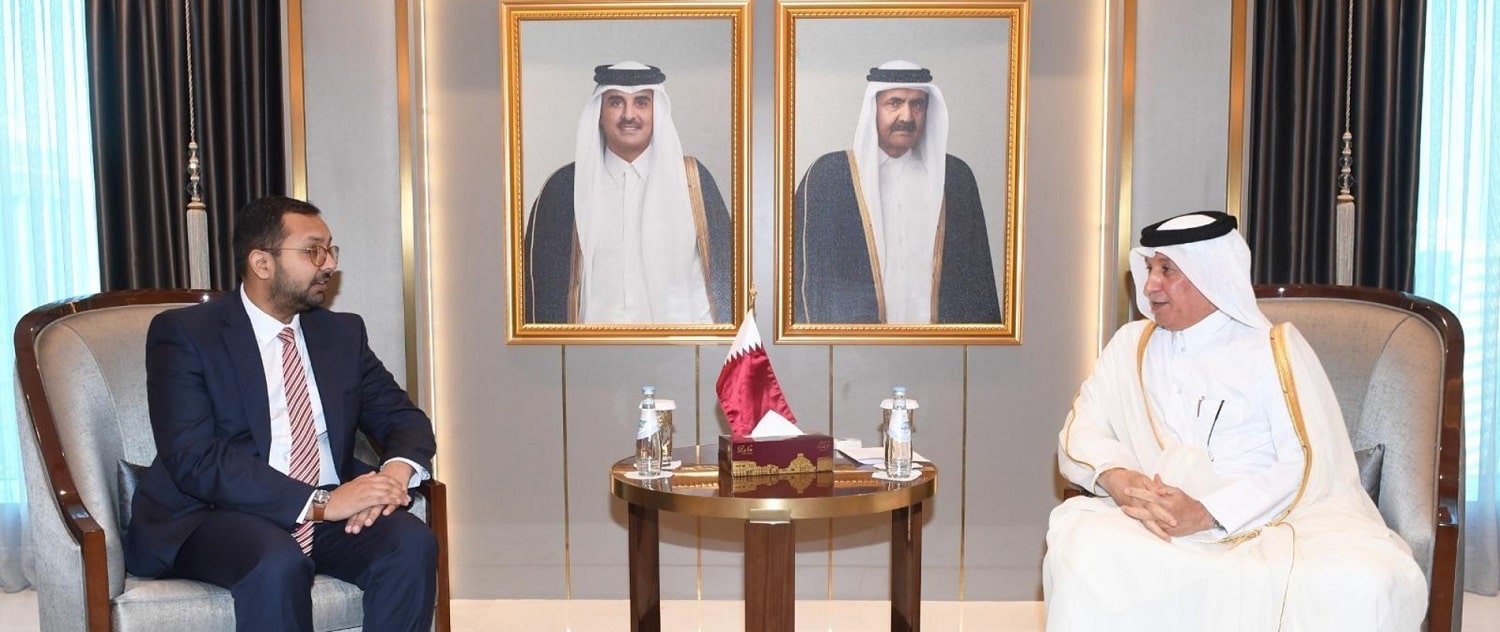
Ambassador Neerav Patel with HE Sultan Al Muraikhi, Minister of State for Foreign Affairs
1200. Doha Book Fair. Through the year there are dozens, if not more than a hundred, sporting, educational and cultural events. Today I go to the opening of an international book fair, where I visit the UK stands with the Director of the British Council, meet the Qatari education minister and share the event on my social media channels.
1330. Calls with London. The UK is 3 hours behind, so the afternoon typically includes calls with London alongside engagements in Qatar.
I speak regularly with my counterpart, Qatar’s Ambassador to the UK. We cover upcoming engagements in both directions, plus live issues that need managing. On logistics, the basic rule is that their Embassy in London does visits to the UK, and we do visits to Qatar. But in truth both provide opportunities (and sometimes risks), so it is key to understand each others’ priorities.
Beyond Whitehall, there are British institutions –- universities, businesses, cultural institutions, local governments – that need our support. For example, the British Library has been working with the Qatari National Library to digitise historic records from the old India Office; more than 1.5 million pages are now online – the largest open access repository on Middle East history in the world.
Overall I spend about 30 per cent of my time facing towards the UK in some way. I make 3-4 annual working trips to the UK (not just London) each year, including in the summer when a huge number of Qatari government, business and cultural leaders decamp to Britain, to escape the 45C heat and 90% humidity.
1500. Interview with Al Jazeera. Ambassadors are among the most publicly exposed of Civil Servants. My British colleagues around the globe are regularly on the evening news or front pages in their host nations. Public diplomacy is non-optional: communicating and influencing in support of British policy objectives – in my case directly to the Qatari public via Qatari news channels, or even to the region more widely. The big one in Doha is Al Jazeera, which regularly reaches an audience of more than 100 million. Here, I need to articulate clearly and concisely complex political issues for a non-specialist audience. The UK is respected, but our approach to the Gaza conflict since October leads to some tough questions.
I do not just do interviews, press releases and op-eds. I run three social media accounts – X/Twitter for politics, Instagram for family and culture, and LinkedIn for business. My most popular posts have been a video recap of my first three months, and ones that show the connection between UK and Qatari culture. For example, a St George’s day thread on Shakespeare’s many references to falconry alongside some Arabic poetry about the sport went down well; falconry is a Bedouin tradition going back centuries, and important to Qatar’s national identity today. Social media allows me to make connections on a more personal basis, while showing who I am, and what I do as Britain’s Ambassador.
1630. Qatari wedding. I go to roughly one every other week (staff, sons and daughters of contacts), going in to congratulate the groom and his male relatives, have traditional cardamom coffee and watch the sword dance. It’s often a great chance to catch up informally on gossip about what is happening in the influential Diwans around town.
1700. Family time. When our children (5 and 7) get back from school, I go home and stop doing emails. Our Residence is in the Embassy compound, a 10 second walk from the office building, and is constantly in use for official entertaining, as well as being a family home. This is a privilege, but it means I need to be disciplined about breaking away from work. These couple of hours away from the office are a source of resilience for me.
An Ambassador I once worked for told me that diplomats’ spouses were given an assessment in annual appraisals when he first started in the Foreign Office. ‘So-and-so is a good team player, and helps to entertain well’. Yuk! Thankfully those days are well and truly in the past. My wife Siobhan has her own career, but she is also keen to meet and entertain Qataris, and also to support the community of UK diplomats and their families. She will often join me on the dinner party circuit, or we will have people over for a BBQ as well as more formal entertaining.
1900 to late. Out and about. Diplomacy is a contact sport, and the evening is often the busiest time of day. I have two events to attend this evening, although it could be as many as four.
These are not only big receptions in hotels (of which there are plenty). Just as a foreign diplomat posted to London wouldn’t get a good feel for the UK by only staying in central London, so too do I try to get out across the country, mixing up the formal and informal, including museums, sporting and cultural events, historical sites; and the personal Majlises (sitting rooms) of prominent families. The aim is to find different perspectives and to understand the country, properly.
The Majlis system is unique to the region and a key source of social capital. The hospitality is unfailingly impeccable, and their informality and openness is a good foil to official meetings. Disputes are aired, informal deals struck and power and decision making dynamics revealed. It is in Majlises that I have heard the history that can’t be found online or in books, such as the real story about why a major British firm left Qatar under a cloud 30 years ago, and isn’t welcome back. Given Doha’s position as a political and economic crossroads, the perspectives one hears aren’t just Qatari. I went to one desert camp in my first month and sat around a fire with a senior ex-Mossad representative, the CEO of a major European bank, and someone who helped to run a recent US Presidential campaign. Only in Qatar.
Closing thoughts
I hesitate to venture any lessons, but offer two reflections.
First, on Variety. The variety of the job lies not just in the range of policies I have to deal with (foreign-domestic and security-prosperity should be considered dead distinctions), but in the skills I need to bring to the job (political judgement, managerial grip, economic understanding, cultural sensitivity, communication abilities). That variety is often crammed into a day, like the one just described, and requires switching focus repeatedly. Anyone interested in this kind of job needs to consider whether they would enjoy that opportunity, and has the ability to play across the whole pitch.
Second, on Perspective. It would be wrong to portray an Ambassador’s role as always being the living, beating heart of what’s happening in the Embassy. Sometimes you are the star striker, or front person. But just as often you are the kitman or roadie. Some of my most important contributions have been to facilitate connections between those actually responsible – Ministers talking with counterparts, CEOs making deals with business partners, institutions collaborating on a shared endeavour. As one very senior Ambassador put it to me before I started: enjoy it, but don’t let it go to your head.
X / Twitter @npatelFCDO
Instagram @neeravpatel
LinkedIn @neerav-patel
